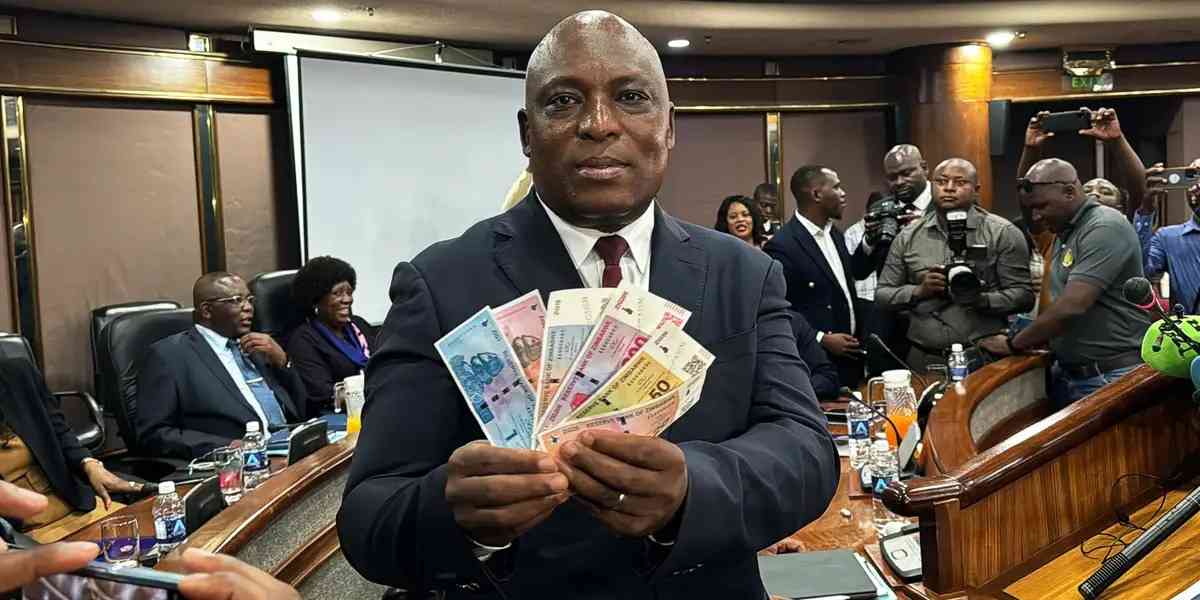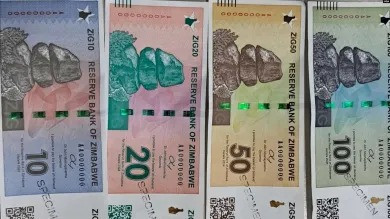
The deepening climate crisis – so evident across the world this year – calls for action, and that means enormous investments in every country. Zimbabwe is no exception.
According to analysis by the World Economic Forum and the International Monetary Fund, for the United Nations Sustainable Development Goals (SDGs) to be within reach by 2030, worldwide capital spending on energy infrastructure must reach US$ 5 trillion annually.
The public sector cannot meet this challenge without substantial support from private investors.
At the same time, private organizations are facing demands from their own investors, policymakers, and a broad range of stakeholders to incorporate environmental, social, and governance (ESG) initiatives into their business activities – even where it is not (yet) government mandated.
As stakeholders incorporate ESG information into capital allocation decisions, all parties are seeking high quality, assured reporting on non-financial ESG data.
The need is evident for comprehensive frameworks for reporting sustainability information for both the private and public sectors.
Business leaders are working to put robust internal sustainability processes in place, and they are looking to local and international standard-setters for consensus on ESG-specific reporting measures.
IFAC – the International Federation of Accountants – believes the global accountancy profession will be a critical facilitator to ensure that global sustainability standards are adaptable to all markets.
- Dual economy Zim’s Achilles heel
- Village Rhapsody: How Zimbabwe can improve governance
- Parly caucus on PWDs mooted
- Dual economy Zim’s Achilles heel
Keep Reading
With deep insight into value creation in the public and private sectors, professional accountants are well-placed to champion the work of the International Sustainability Standards Board (ISSB) in every country and organisation.
Economic challenges facing Zimbabwe
Inflation, climate change, governance instability, and many more challenges affect our wellbeing regardless of where we live.
Country-specific circumstances will defy a one-size-fits-all solution.
But to be effective, a comprehensive global baseline for ESG reporting standards must become local. This may be especially important to Zimbabwe’s ability to stimulate investment.
According to analysis from the United Nations Department of Economic and Social Affairs, inflation is projected to increase to 6.7% worldwide in 2022, twice the average of 2.9% recorded from 2010–2020.
Hyperinflation, such as that experienced in Zimbabwe, deters much-needed foreign investment.
Investment complexity will be compounded by the growing demand for ESG investment.
Tightening global monetary policies and exchange rate fluctuations will continue to constrain government spending in many countries.
Critical financing for sustainable development projects that promote a circular-economy methodology within emerging markets such as Zimbabwe may be negatively impacted by these added financing complexities .
This is where the private sector must step in.
For organisations to meet ESG-related expectations from foreign and local investors, regulators, and all stakeholders – and to ensure their own long-term sustainability – they need to provide reliable ESG information that accurately reflects the sustainability risks and opportunities they face.
Accountants are key to sustainable economic development
The accountancy profession can steward the information that informs consistent and achievable ESG measures in Zimbabwe’s private sector.
Professional accountants have the skills to help companies identify climate matters material to financial performance and align their climate commitments with financial disclosure.
Accountants are also in prime position to help move ESG commitments into actions.
It all comes down to trust.
Investors and stakeholders make decisions on how to deploy capital based partly on their confidence in the information they receive.
For organisations to gain and keep investor trust, their sustainability disclosures must be subject to high-quality, independent, external assurance.
Independent professional accountants within Zimbabwe can provide reliable sustainability services and assurance, as they possess the right experience and a professional ethical obligation, under the International Code of Ethics for Professional Accountants, to act in the public interest.
On October 27th, the Public Accountants and Auditors Board – the national standard setter for Zimbabwe – announced the mandatory early adoption of the ISSB standards when they are issued.
These standards will provide a comprehensive global baseline for sustainability-related disclosures that provide investors and other capital market participants with information about companies’ sustainability-related risks and opportunities to help them make informed decisions.
Early adoption will have a positive impact on foreign direct investment and add legitimacy to the position of Zimbabwean companies on the global stage.
But regular and transparent sustainability reporting cannot just happen within private organizations; it must happen in government and public entities, as well, to enact the macro changes that will propel societies forward.
Professional accountants are working to advance public sector sustainability reporting globally.
For example, the International Public Sector Accounting Standards Board (IPSASB) has proposed that it act as the standard setter for global public sector specific sustainability guidance.
Within Zimbabwe’s public sector, the continued implementation of full accrual accounting using the International Standards for Public Sector Accounting is an essential component of the needed change.
It will ensure increased transparency and accountability, while supporting informed decision-making on public finance matters.
But financial information only tells part of the story.
Sustainability information will become an indispensable component of the annual reporting of public sector entities.
IFAC is working in partnership with the African accountancy profession to build the capacity necessary to support a strong ecosystem of ESG reporting.
In recent years, IFAC has worked with professional accountancy organizations in Ghana, Nigeria, Rwanda, Uganda, and Zimbabwe, alongside the Pan-African Federation of Accountants (PAFA), on critical capacity-building efforts, including updates to qualifications and additional training for educators and examiners.
Last year, Gavi, the Vaccine Alliance and the Global Fund signed an MoU with IFAC to receive support in building public financial management and accountancy capacity in their focus countries, including Zimbabwe; in June, the United States Agency for International Development, or USAid, also joined this partnership.
The IFAC family and our network will continue supporting and advocating for the public interest in Zimbabwe and across the continent.
Translating intention into action
A comprehensive global baseline for sustainability-related disclosure standards, if widely adopted and fully implemented, will empower Zimbabwe, as well as its business and trading partners, investors, and other market participants to make informed decisions with holistic information on an entity’s sustainability-related risks and opportunities.
But even the best and most useful disclosures are no more than information.
For society’s work toward sustainability to have real value, it must lead to changed behaviors.
These will be the truer measure of progress in aligning short-term decisions with long-term value creation, resiliency, and sustainability.
For such measures to succeed, the accountancy profession needs to seize this moment – in partnership with all its stakeholders – to lead the world from commitment to implementation.
With the deadline for the achievement of the Sustainable Development Goals set for 2030, less than eight years remain to close a staggering gap between climate targets and climate realities (goal 13), to end poverty (goal 1) and hunger (goal 2), and to meet the other fourteen crucial goals. Solving these crises will be the challenge of the 21st century.
Building a more inclusive, equitable, diverse, and sustainable world will be the reward.
*Kevin Dancey is International Federation of Accountants (IFAC) chief executive officer and Bruce Vivian is the International Federation of Accountants (IFAC) principal











